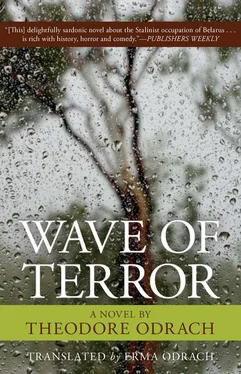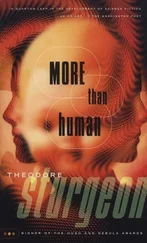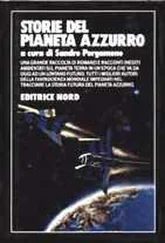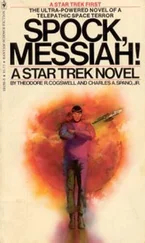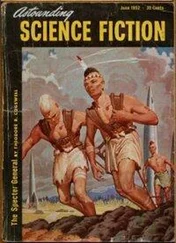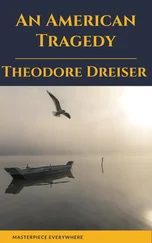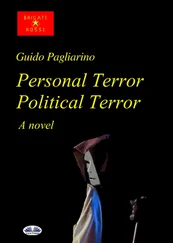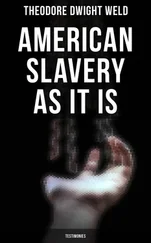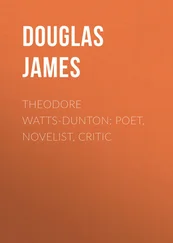Looking into their faces, he saw them in a completely new light. They had not only become kinder and more understanding of one another but also more loving. They were not selfish and inconsiderate as he had believed, but quite the opposite. He felt guilty. How could he have doubted their sincerity? How could he have been so wrong about them?
Efrosinia stepped up to him, and squeezing his left arm, whispered her heartfelt thanks. He could feel himself reddening with embarrassment. If they knew what had been going through his mind just a moment ago, how much he had regretted becoming a part of their lives! And now he was being made into a hero, a savior. And for what? For a mere promise that never got fulfilled. After a moment he said, “This is wonderful news. I’m so pleased everything worked out.”
Wishing them a good day, feeling completely invigorated, he made his way down the snow-covered sidewalk. The first lecture of the day would begin in about half an hour and he didn’t want to be late. As he pulled his cap over his ears, he couldn’t stop thinking of Lonia’s letter. What struck him most about it was that it was written in Ukrainian, not in Russian, and his family hadn’t even noticed, and if they had, they wouldn’t have cared.
The next morning Kulik appeared at the Holzman Theater early, and taking a seat in the back row, watched the auditorium fill with teachers: men, women, young and old, some speaking Belorussian, some Ukrainian, but most speaking Russian. They all sat with satchels at their feet and writing pads on their laps, ready to take notes. When a tall, weedy man in his mid-forties with a turned-up moustache and greased hair was called to the stage, the buzzing of voices stopped. The man spoke loudly and arrogantly in a thick Russian dialect.
“Good morning, comrades. Welcome to the first teachers’ conference of Western Belorussia. I am proud to say that the Pinsk region is to become a part of the new Belorussian Soviet Socialist Republic. Finally we are rid of the bloodsucking, bourgeois Polish imperialists and are united under the solid protection of mighty Mother Russia. Through our education system we will build a strong empire to serve all Soviet peoples.”
Flipping through a pile of papers on a stand before him, he cleared his throat and went on. “We will start off this lecture with a brief introduction to the Belorussian language, and then we will concentrate on the Great October Revolution.”
Kulik scribbled something on a piece of paper. His hand felt stiff and he found it difficult to keep pace with the lecturer’s words. The theater was hot and stuffy. His neighbor to the right, a dark-haired, shabbily dressed young man, shifted uncomfortably, and then moved to the edge of his seat, squinting and craning his neck. At first, Kulik assumed the man was so taken by what the lecturer was saying that he did not want to miss a single word, but it became evident he was having trouble understanding the Russian dialect.
Kulik returned his attention to his notes. After jotting down several lines, he felt a rather sharp nudge on his left shoulder. Assuming someone had accidentally knocked into him, he turned and was startled to find a government officer standing there, staring at him. The officer signaled sternly with his head, and Kulik got up and followed him out into the corridor. The officer prodded him toward the entranceway. As he heard the tapping of his own shoes against the gray concrete floor, Kulik was seized by dread. What was going on? Why was he being summoned, and by whom?
He immediately thought the worst. Black clouds were rapidly moving in. He was well aware that innocent people, particularly the Ukrainian intelligentsia, were being arrested en masse , executed or exiled to the northern stretches of Siberia: scientists, writers, artists, educators, all were being branded “bourgeois nationalists,” “conspirators against the Soviet government,” “elements dangerous to society” and so forth, and eliminated. Was it his turn now? Was he about to be dragged to his doom? He tried to tell himself not to jump to conclusions.
After a few minutes they came to the Oblispolkom , and went up two flights of narrow wooden stairs, to a large, dingy office with hardwood floors, a high ceiling, and small grimy boxlike windows. Behind an oak desk sat Yeliseyenko, Commissar of Education. He thumbed through a pile of documents, and after pulling out several sheets of typed pages, leaned forward and filled a heavy fountain pen from a small bottle of blue ink. After taking a sip of water from a glass on his desk, he finally looked directly at Kulik.
Kulik braced himself. Undoubtedly, the commissar had something on him, something serious, or he would not have summoned him here to his office. He had to try and find a way to protect himself, and fast. But how could he, when he didn’t know how he would be attacked? He was about to be accused of some unknown horror.
Yeliseyenko rose from his seat, and with his hands behind his back, and his head bent, paced between his desk and the window. He seemed to be trying to decide what to hit him with first. He looked up from under his brows and said authoritatively, “I understand you are the headmaster of School Number Seven in Hlaby.”
“Yes, that’s correct.” Kulik’s heart thudded in his ears.
“Please, have a seat.” Yeliseyenko glanced down at his notes, then looked up again. “Well, hmm … this is all rather interesting. Yes, yes, I remember you from the New Year’s Eve dance. And now the question remains, what are we to do with you?” His eyes bore into Kulik, who felt as if he were being hit by a series of grenades. “The Pinsk region, and this includes Hlaby, has been affixed to the Belorussian Soviet Socialist Republic in which Belorussian and only Belorussian is to be taught. Why are you promoting Ukrainian in your school? Are you aware of the complications you are creating for yourself? It’s becoming evident to me that you are a Ukrainian nationalist, perhaps even a saboteur of some sort. This matter can easily lead to very serious consequences.”
So that was it. They already had a file on him! Striving to appear calm, Kulik drew a deep breath. He had to play their game; one small slip and it could be all over. He had to say something and fast, something to neutralize this accuser. But when he opened his mouth to speak, he was shocked by what came out — he didn’t know where the words came from. “I understand why I’m here,” he mumbled. “I know what you want from me.” He was horrified. What a careless thing for him to have said! He had just implicated himself, admitted his own guilt!
Yeliseyenko grinned triumphantly and nodded, as if he had already convicted him. “So, you know what we want from you. In other words, you agree your behavior has been questionable. Everything is clear, yes, as though it were written on the back of my hand. You’ve decided to give instruction in your school in Ukrainian, that we are well aware of. But who authorized you to make this decision? We are a part of the Belorussian Republic and it is Belorussian, along with Russian, of course, that will be taught in the schools. Moscow has made its decision and its decision cannot, under any circumstance, be contradicted.”
He went on. “And why are you biting your lip? And now you’re shrugging your shoulders. Are you confused about something? Surely someone as clever as yourself could not have forgotten about the meeting last spring when the National People’s Deputy Committee sectioned off the republics?”
When Kulik did not respond immediately, Yeliseyenko repeated, more harshly, “Have you forgotten?”
“No, I have not.” Trying to collect himself, staring directly at Yeliseyenko, Kulik searched for a suitable reply. “I am proud not only of our Soviet regime but also to be a member of the greatest nation on earth.” Then quite unexpectedly and to his dismay, he found himself going off in a different direction, one that he had promised himself to avoid at all costs: he became bold, even defiant — in short, a danger to himself. The words rushed out of his mouth before he could stop them. “I am confident, when the regime becomes better acquainted with the Pinsk region, it will undoubtedly reconsider its stand and attach the area to Ukraine where it belongs.”
Читать дальше
